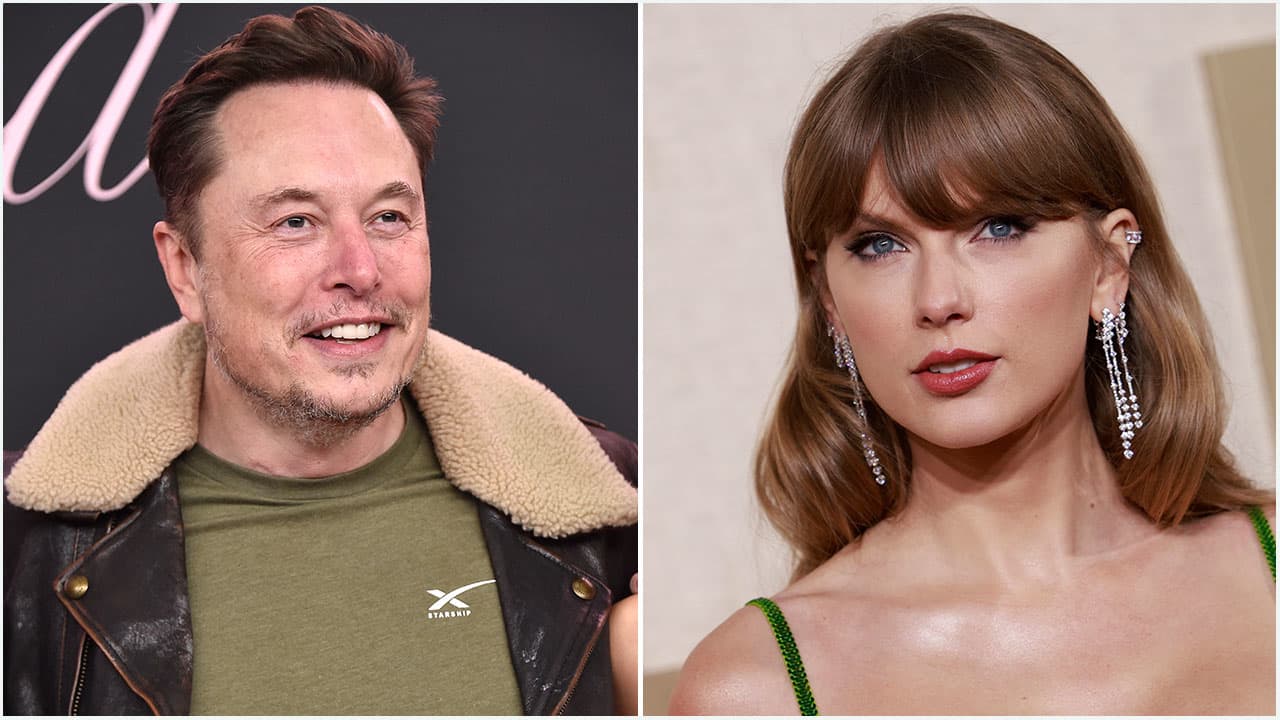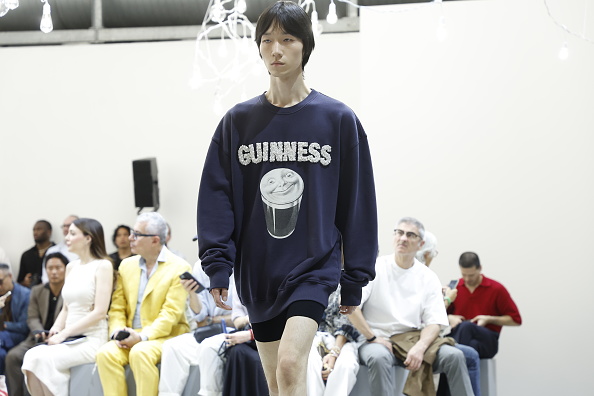Taylor Swift Joins Elon Musk on Global Billionaire Rankings
Elon Musk has some new company on the list of the world’s richest people: Taylor Swift, who’s now reached her billionaire “era.”
Buoyed by the rise in Tesla stock and the surge in SpaceX’s valuation, Musk has reclaimed the title of the world’s richest person in an annual ranking of billionaires.
Musk’s US$231 billion fortune catapulted him above Amazon executive chairman Jeff Bezos (US$185 billion) and LVMH CEO Bernard Arnault (US$175 billion), who ranked second and third, respectively, on the 13th Hurun Global Rich Report, an annual survey from China-based media and research firm Hurun. This year marked Musk’s third time in four years at the top of the roster.
Swift made her debut on the list, her wealth, estimated at US$1.2 million, propelled by her Eras Tour and royalties from re-recording her albums.
Mark Zuckerberg (US$158 billion), CEO of Meta Platforms Inc., trailed at No. 4, but added more wealth than anyone on the list, as Meta shares more than doubled, the report said.
Miami-based entrepreneur Ryan Breslow (US$1.3 billion), the 30-year-old chairman of fintech platform Bolt, entered the list this year as its youngest self-made billionaire. While 66 is the average age of billionaires on the list, 93 billionaires ranked are 40 or younger.
The list ranked 3,279 billionaires, up from 3,112 the previous year. The number of billionaires increased by 5% and their total wealth was up 9%, Hurun said in a news release. The wealthiest hail from 2,435 companies and 73 countries.
The wealth calculations are through Jan. 15 of this year.
For the first time, more than half the new wealth on the list was generated by the boom in AI, the report said.
“AI has been the major driver for wealth growth,” Rupert Hoogewerf , Hurun’s chairman and chief researcher, said in a statement. “Whilst [Nvidia president] Jensen Huang has grabbed many of the headlines as Nvidia broke through the US$2 trillion mark and catapulting him into the Hurun Top 30 as a result, the billionaires behind Microsoft, Google, Amazon, Oracle and Meta have seen significant surges in their wealth as investors bet on the value generated by AI.”
Despite losing 155 billionaires, China still claims the most, with 814, the report said. The U.S. added 109 billionaires, for a total of 800. India added 84, and now has almost double the number of billionaires as the U.K., the report said.
If there’s a billionaire capital, it’s New York, where more reside than any other city; London ranked second, and Mumbai third, edging out other locales to become Asia’s hub for billionaires.
Overall, the world’s wealthiest made their money in financial services (10%), followed by consumer goods (8%), and food & beverages (7%) and real estate (7%), Hurun said. By sector, it was a “good year” for media and entertainment, which added US$226 billion, outpacing software and services at US$149 billion, financial services at US$118 billion, and retail, at US$104 billion.
Not everyone was a winner. The report said 1,346 billionaires saw their wealth decrease; 278 of them dropped off the list, with 208 of those hailing from China.
“Wealth creation in China has gone through deep changes these last few years, with the wealth of billionaires from real estate and renewables down,” Hoogewerf said in a statement. “Whilst as many as 40% of the Hurun Global Rich List from the high water mark two years ago have lost their billionaire status, China has added 120 new faces to the list.
The report called the latest rankings a “bad year” for healthcare, where billionaires in the field shed US$75 billion; followed by industrial products, declining US$46 billion; food & beverages, losing US$40 billion; and real estate, dropping by US$32 billion.
 Copyright 2020, Dow Jones & Company, Inc. All Rights Reserved Worldwide. LEARN MORE
Copyright 2020, Dow Jones & Company, Inc. All Rights Reserved Worldwide. LEARN MORE
This stylish family home combines a classic palette and finishes with a flexible floorplan
Just 55 minutes from Sydney, make this your creative getaway located in the majestic Hawkesbury region.
Continued stagflation and cost of living pressures are causing couples to think twice about starting a family, new data has revealed, with long term impacts expected
Australia is in the midst of a ‘baby recession’ with preliminary estimates showing the number of births in 2023 fell by more than four percent to the lowest level since 2006, according to KPMG. The consultancy firm says this reflects the impact of cost-of-living pressures on the feasibility of younger Australians starting a family.
KPMG estimates that 289,100 babies were born in 2023. This compares to 300,684 babies in 2022 and 309,996 in 2021, according to the Australian Bureau of Statistics (ABS). KPMG urban economist Terry Rawnsley said weak economic growth often leads to a reduced number of births. In 2023, ABS data shows gross domestic product (GDP) fell to 1.5 percent. Despite the population growing by 2.5 percent in 2023, GDP on a per capita basis went into negative territory, down one percent over the 12 months.
“Birth rates provide insight into long-term population growth as well as the current confidence of Australian families,” said Mr Rawnsley. “We haven’t seen such a sharp drop in births in Australia since the period of economic stagflation in the 1970s, which coincided with the initial widespread adoption of the contraceptive pill.”
Mr Rawnsley said many Australian couples delayed starting a family while the pandemic played out in 2020. The number of births fell from 305,832 in 2019 to 294,369 in 2020. Then in 2021, strong employment and vast amounts of stimulus money, along with high household savings due to lockdowns, gave couples better financial means to have a baby. This led to a rebound in births.
However, the re-opening of the global economy in 2022 led to soaring inflation. By the start of 2023, the Australian consumer price index (CPI) had risen to its highest level since 1990 at 7.8 percent per annum. By that stage, the Reserve Bank had already commenced an aggressive rate-hiking strategy to fight inflation and had raised the cash rate every month between May and December 2022.
Five more rate hikes during 2023 put further pressure on couples with mortgages and put the brakes on family formation. “This combination of the pandemic and rapid economic changes explains the spike and subsequent sharp decline in birth rates we have observed over the past four years,” Mr Rawnsley said.
The impact of high costs of living on couples’ decision to have a baby is highlighted in births data for the capital cities. KPMG estimates there were 60,860 births in Sydney in 2023, down 8.6 percent from 2019. There were 56,270 births in Melbourne, down 7.3 percent. In Perth, there were 25,020 births, down 6 percent, while in Brisbane there were 30,250 births, down 4.3 percent. Canberra was the only capital city where there was no fall in the number of births in 2023 compared to 2019.
“CPI growth in Canberra has been slightly subdued compared to that in other major cities, and the economic outlook has remained strong,” Mr Rawnsley said. “This means families have not been hurting as much as those in other capital cities, and in turn, we’ve seen a stabilisation of births in the ACT.”
This stylish family home combines a classic palette and finishes with a flexible floorplan
Just 55 minutes from Sydney, make this your creative getaway located in the majestic Hawkesbury region.






















